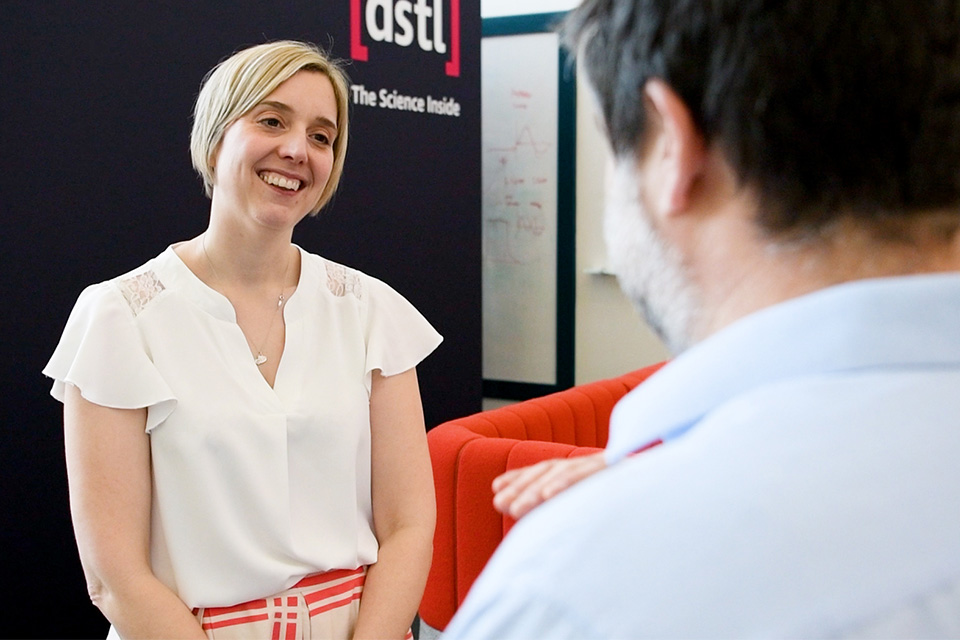Sarah started as an administrator and has been promoted through the ranks to programme manager in one of the most exciting areas of the organisation.
She said
Our job is to anticipate the future and that's by finding really high impact, high uncertainty science and technology concepts that are brand new to defence.
It's really important that defence looks at the future. You take horizon-scanning and lots of different data sources to try and find those nuggets and ideas that we need to take forward.
We are working on lots of different things right now, from looking at gut microbiomes all the way to something like telexistence.
Sarah, who now works in Defence S&T Futures, explained that one of the ways they encourage people to think differently is the Museum of the Future.
This virtual reality system allows people to be immersed in future operating environments or be introduced to new pieces of technology.
There are also board games and cards as it is important to have lots of different ways of telling the same story because people understand things in different ways.

Sarah said:
I joined Dstl in 2003 so I've just celebrated my 20th anniversary. I joined as a level 3 as an administrator so my job was filing, scanning and answering the phone so I don't have that traditional scientific background. But I've worked my way up the levels: I'm now at level 7.
You don't have to start at one place and stay there. I've worked in all but one of the divisions that we have here so there are real opportunities. I think you just have to be one of those people that says I'll try that and see what happens.. and that's essentially my career.
The reason why I love Futures is there's no wrong idea. So it doesn't matter if you're a scientist or you work in admin, it doesn't matter if you are technical or non-technical; all those life experiences you bring really help us look at the future.

Sarah also praised the flexible working at Dstl and is herself involved in a job share.






